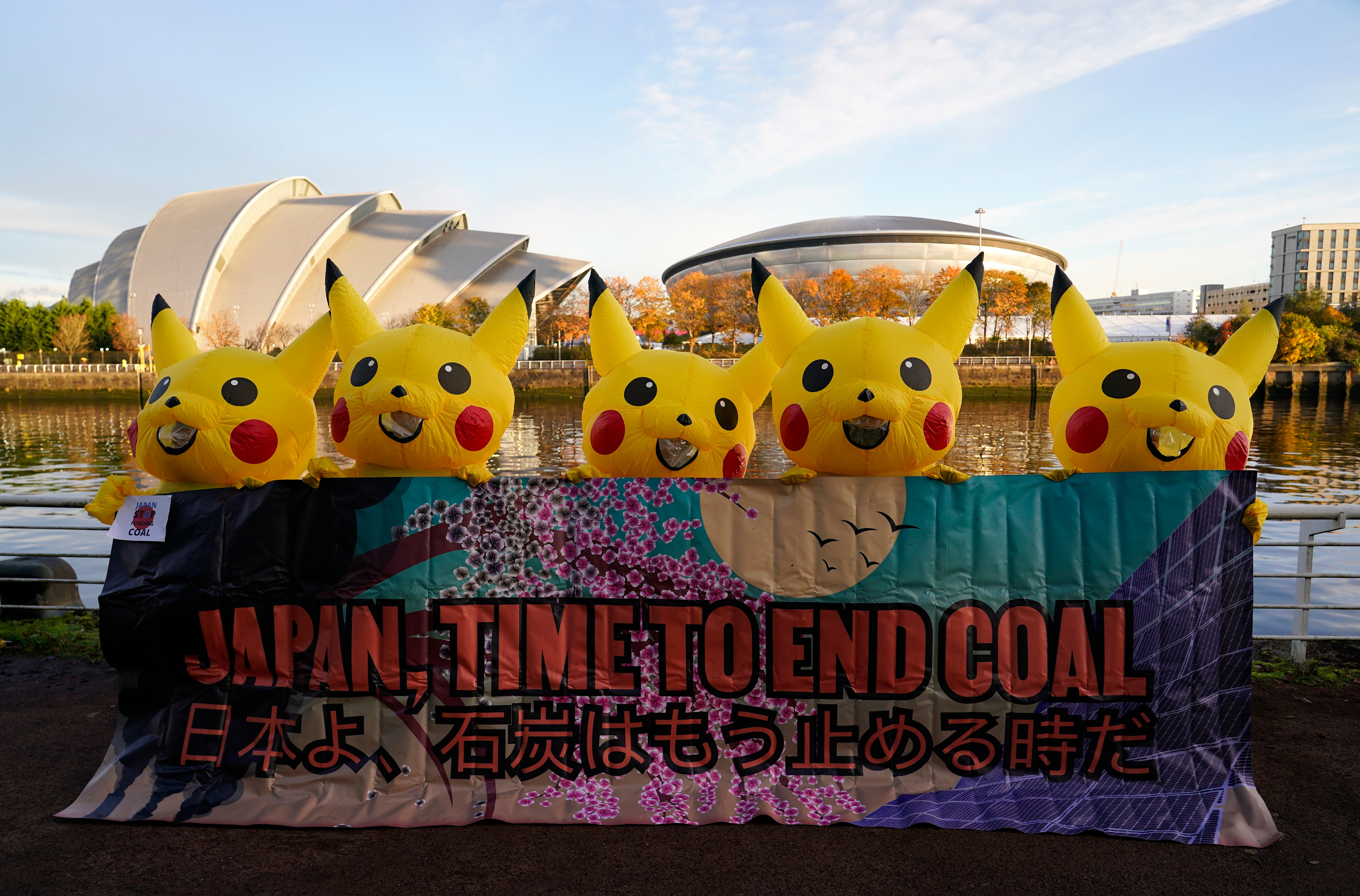Cop26: What is in the fine print of the UK-led deal to end coal-fired power?
Climate correspondent Daisy Dunne takes a closer look at the UK’s claims that the end of coal is ‘in sight’


Your support helps us to tell the story
From reproductive rights to climate change to Big Tech, The Independent is on the ground when the story is developing. Whether it's investigating the financials of Elon Musk's pro-Trump PAC or producing our latest documentary, 'The A Word', which shines a light on the American women fighting for reproductive rights, we know how important it is to parse out the facts from the messaging.
At such a critical moment in US history, we need reporters on the ground. Your donation allows us to keep sending journalists to speak to both sides of the story.
The Independent is trusted by Americans across the entire political spectrum. And unlike many other quality news outlets, we choose not to lock Americans out of our reporting and analysis with paywalls. We believe quality journalism should be available to everyone, paid for by those who can afford it.
Your support makes all the difference.It is day four of the Cop26 climate summit, and coal – the single largest driver of global temperature rise – is dominating conversations.
Last night the UK government said that 190 countries, regions and companies had now agreed to take measures to end their use of the world’s dirtiest fossil fuel. Today, it was confirmed that at least 23 countries had made new commitments to phase out coal power. This includes five of the world’s top 20 coal-using countries.
Although the shift away from coal represents climate progress, the headline figures hide a lot of caveats. For example, the world’s biggest coal user, China, is not part of the new commitments. Neither are the US, India or Australia.
And UK minister and Cop president Alok Sharma today confirmed that the 190-strong coalition is a catch-all for countries and companies signed up to various different agreements.
It includes signatories to the Powering Past Coal Alliance (PPCA), a four-year-old initiative that the UK co-chairs with other countries including Chile and Singapore. The PPCA has in the past been accused of greenwashing.
Others have signed up to the new UK-led Cop26 Coal to Clean Power transition statement. This agreement includes four goals:
- To rapidly scale up clean power generation
- To phase out coal, in the 2030s for rich economies and in the 2040s for developing countries
- To stop building new coal-fired power plants
- To ensure workers employed by the coal industry are not left behind
But a closer look at the text reveals that signatories do not have to commit to every clause. For example, Indonesia has agreed to every clause except for the commitment not to build new coal-fired power stations.
And observers have also raised concerns about the second clause in the statement. A landmark report from the International Energy Agency previously said that rich nations should phase out coal by 2030 at the latest, with the rest of the world joining by 2040, if the world is to reach net zero.
What’s more, today officials conceded that there was some “flexibility” in the 2030 and 2040 phase-out commitments.
Poland, a major coal-using country that has signed up to the new commitment, has just announced that it does not plan to phase out the fossil fuel until 2049 – the latest possible date for developing countries.
“The small print seemingly gives countries enormous leeway to pick their own phase-out date, despite the shiny headline,” said Juan Pablo Osornio, head of Greenpeace’s delegation at Cop26.
“A plan to end coal by 2030 at the latest is what’s needed for Poland, Germany, and the rest of the Organisation for Economic Cooperation and Development. And a solid commitment is needed from all governments to end new coal, oil and gas projects immediately so we have a chance of keeping global warming limited to 1.5C.”
Join our commenting forum
Join thought-provoking conversations, follow other Independent readers and see their replies
Comments